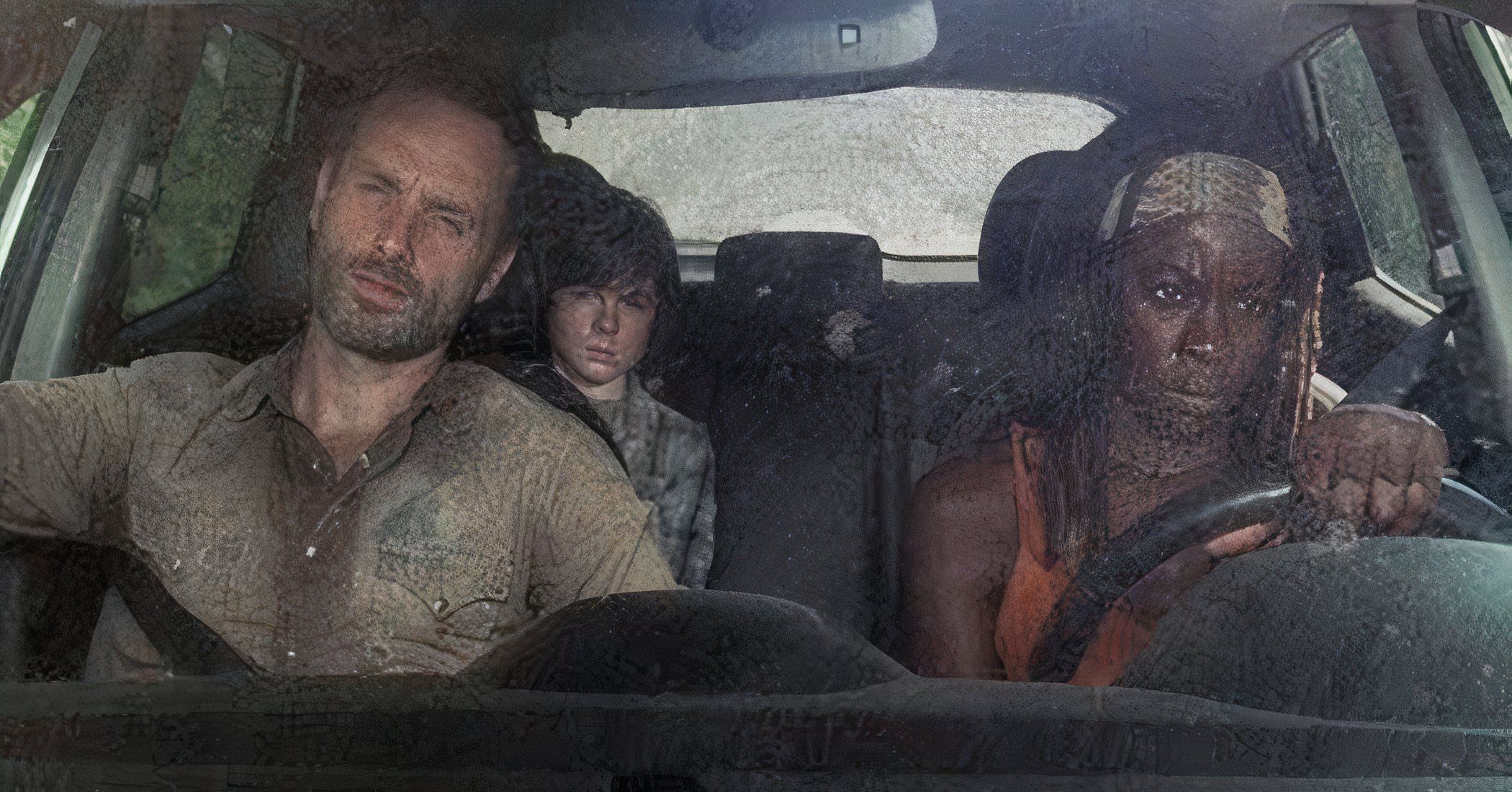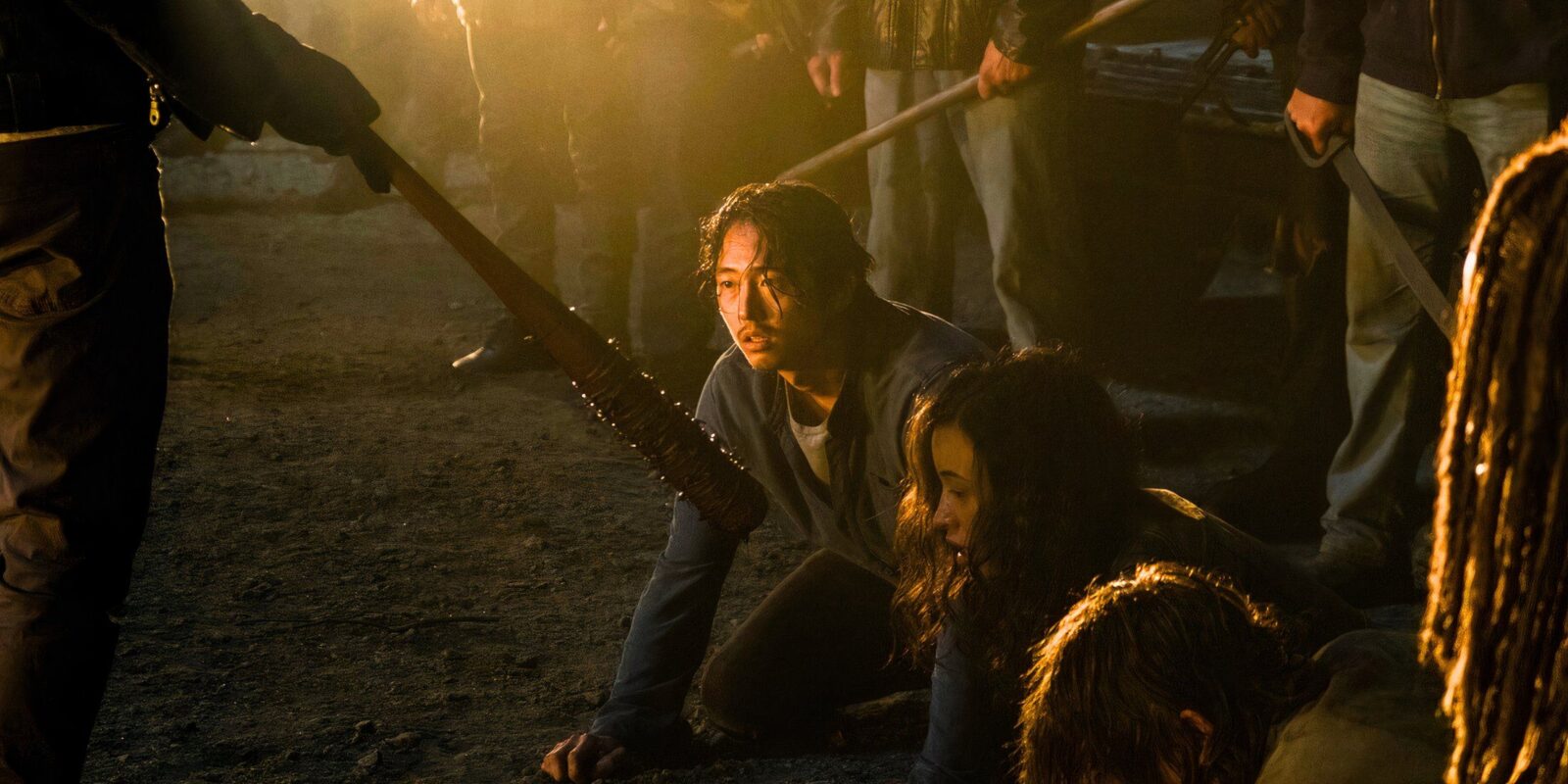Summary
- The decline in viewership of The Walking Dead began around the time of the Season 7 premiere in 2016.
- Fans believe the violent deaths of Abraham and Glenn in Season 7’s premiere led to a dramatic exodus of viewers.
- Controversial storytelling choices like cliffhangers negatively impacted audience investment, despite the show running for 11 seasons.
Few shows have gripped audiences like The Walking Dead, AMC’s post-apocalyptic zombie hit that dominated Sunday nights for years. However, despite its initial success, the series suffered a massive decline in viewership, with a noticeable drop-off around the time of the Season 7 premiere in 2016. Many fans point to one particular episode as the turning point, but what exactly led to such a dramatic exodus?
By the time Season 6 wrapped with Last Day on Earth, The Walking Dead was still an iconic ratings powerhouse, but it had already started to show signs of audience fatigue. The introduction of Jeffrey Dean Morgan’s Negan, one of the most infamous villains in the series’ history, was highly anticipated. However, the season ended with a controversial cliffhanger—Negan swinging his bat, Lucille, down on an unseen mystery victim, leaving fans to wait six agonizing months to learn which character was a gonner.

Related
The Walking Dead Fans Still Can’t Watch This ‘Cruel’ Season 3 Scene
After almost 11 years, The Walking Dead fans still want to “skip” this ruthless act from season 3.
According to a discussion on Reddit, many fans believe the Season 7 premiere is why the show lost a substantial part of its audience. User Luke117B defended the episode, saying, “The Day Will Come When You Won’t Be is a goddamn masterpiece. Last Day On Earth is too. Yet people in droves abandoned the series after both of them.” When Season 7 returned with The Day Will Come When You Won’t Be, the answer to the cliffhanger proved to be one of the most brutal sequences in television history. The episode saw the horrific deaths of both Abraham (Michael Cudlitz) and Glenn (Steven Yeun), and several fans commented the episode’s violence was particularly graphic, even by The Walking Dead standards.
Was Violence The Reason Fans Abandoned The Walking Dead?
Meanwhile, other fans argued it wasn’t the violence itself that tanked the ratings, but the built-up itself. “The cliffhanger was a killer, especially after the Glenn fakeout death,” said one user in reference to an earlier season about-face where Yeun’s character seemingly dies under a dumpster, only to be revealed alive weeks later. Another user agreed, calling the cliffhanger “gimmicky,” suggesting, “If the end of [Season 7, Ep 1] is the season 6 finale, it would have been awesome.”
The controversy surrounding these episodes and future character deaths, including that of Chandler Riggs’ Carl, marked The Walking Dead’s decline. While the show continued to run for a full eleven seasons, it never fully regained its lost viewership. The decline in interest after Season 7’s premiere suggests that the show’s storytelling choices, particularly how it structured key events, had lasting consequences.
Ultimately, this moment in The Walking Dead’s history highlights the delicate balance between delivering shocking, emotional storytelling and respecting audience investment. For many viewers, the handling of Season 6’s cliffhanger and the emotional whiplash that followed proved too much. However, despite the main series ending in 2022, the Walking Dead universe has lived on through various spin-offs, including Fear the Walking Dead, The Walking Dead: World Beyond, The Walking Dead: The Ones Who Live, and The Walking Dead: Daryl Dixon, which will air its third season in 2025.

The Walking Dead
- Release Date
-
2010 – 2022
- Network
-
AMC
- Showrunner
-
Frank Darabont, Angela Kang, Scott M. Gimple, Glen Mazzara















Leave a Reply